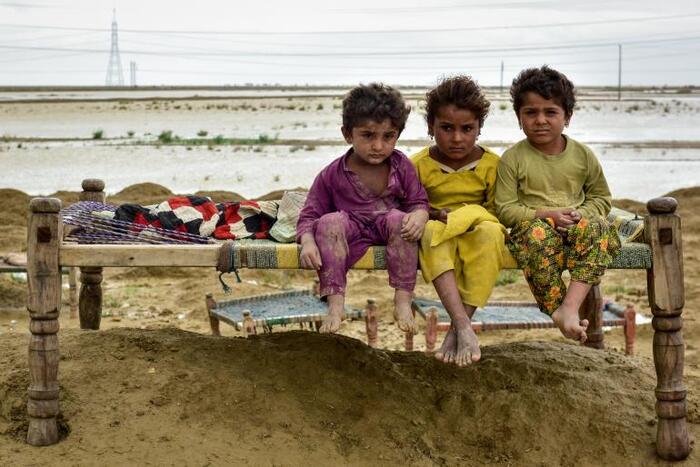
More than three million children are in need of humanitarian assistance and at increased risk of waterborne diseases, drowning and malnutrition due to the most severe flooding in Pakistan’s recent history, UNICEF warned today. UNICEF is working with Government and non-government partners to respond to the urgent needs of children and families in affected areas.
33 million people – including approximately 16 million children – have been affected by this year’s heavy monsoon rains in Pakistan, which have brought devastating rains, floods and landslides. Over 1,100 people including over 350 children have lost their lives, and a further 1,600 have been injured. Over 287,000 houses have been fully, and 662,000 partially, destroyed. Some major rivers have breached their banks and dams overflowed, destroying homes, farms and critical infrastructure including roads, bridges, schools, hospitals and public health facilities.
“When disasters hit, children are always among the most vulnerable,” said Abdullah Fadil, UNICEF Representative in Pakistan. “These floods have already taken a devastating toll on children and families, and the situation could become even worse. UNICEF is working closely with the Government and other partners to ensure that children affected get the critical support they need as soon as possible.”
In affected areas, 30 per cent of water systems are estimated to have been damaged, further increasing the risk of disease outbreaks with people resorting to open defecation and drinking unsafe water.
There are reports of significant damage to education infrastructure as 17,566 schools have been damaged/destroyed, further jeopardizing the education of children. After two years of pandemic school closures in the last few years, children once again risk further disruption to their learning, in areas where one-third of girls and boys were already out-of-school before the crisis.
Source: UNICEF







